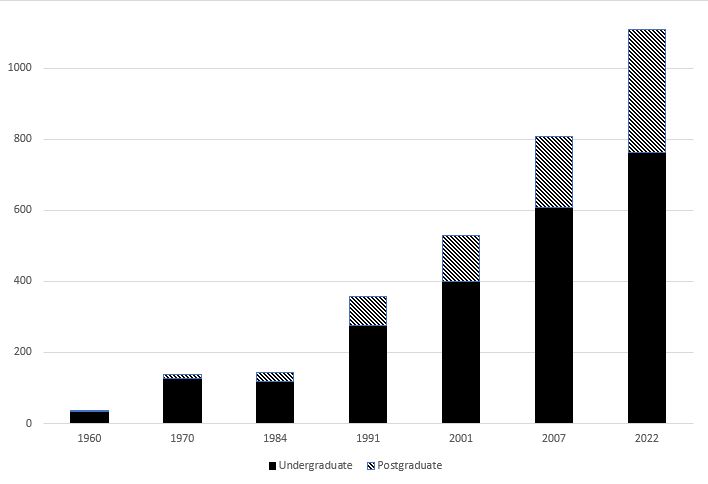The Department currently offers BCom and BCom Honours degrees in Management Sciences within five focal (specialisation) areas, including entrepreneurship and innovation management, financial management, financial planning, investment management, and marketing management. It is also the host department for the four-year BCom International Business degree.
As shown in Figure 1, more than 1100 students graduated with Business Management as one or both of their majors in 2022.1
Figure 1: Number of Business Management graduates2

Prominent alumni include Whitey Basson (Shoprite-Checkers), GT Ferreira and Paul Harris (FirstRand), Santie Botha (ABSA), Niel Krige (Momentum), Johan van den Berg (Eskom), Charles Parker (SAB), Wouter Hanekom (Pioneer Foods) and Francois Groepe (Media24). Sport stars such as Elana Meyer, Mornè du Plessis and Heerden Herman, and acclaimed artist Portchie also obtained their undergraduate qualifications in the Department.
Whereas topics such as the distribution of agricultural products no longer feature in curricula, others such as effective leadership, customer satisfaction and dealing with technological change still warrant research and debate today. From the very start, colleagues have asked questions about the purpose of private enterprise and how best to achieve this purpose. Many have shifted the frontiers of knowledge in this regard.

